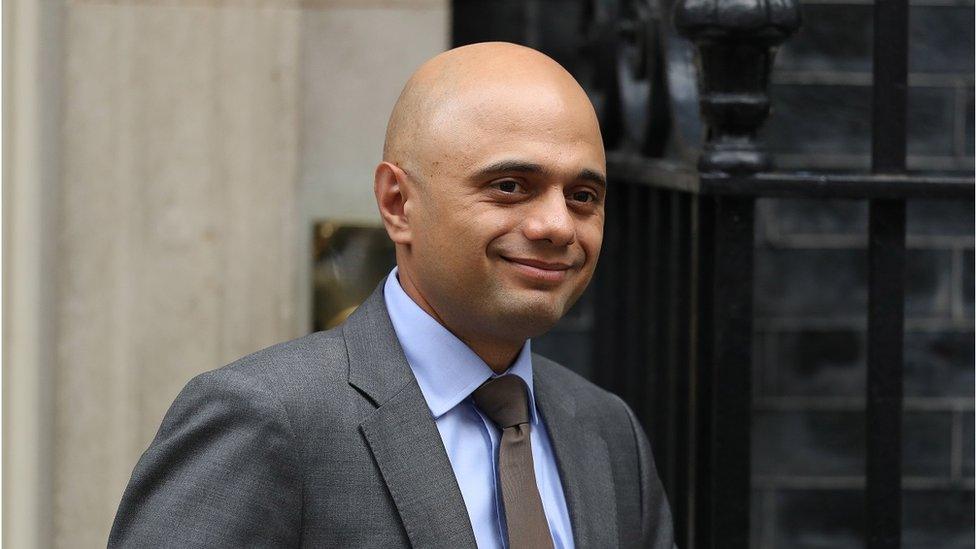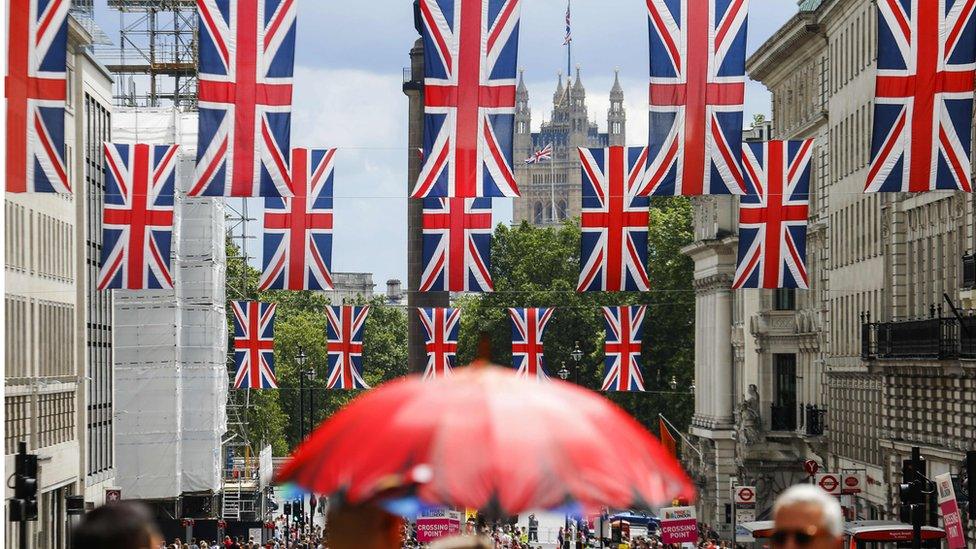Business secretary says EU trade ties are top priority
- Published

Business secretary, Sajid Javid is hosting business leaders on Tuesday
Business Secretary Sajid Javid has said keeping the UK's access to the single market will be a priority during negotiations with the European Union.
His remarks followed a meeting with UK business groups to discuss the fallout from the Brexit vote.
Mr Javid said the need to secure continued access to the single market was the biggest issue raised.
He said he and colleagues had been in contact with many chief executives and big inward investors since Friday.
He said the Business Department had a single named contact for more than 80 of Britain's top inward investors and exporters. The department would be contacting those companies in the coming weeks.
Leaders from the CBI, Institute of Directors (IoD) and British Chambers of Commerce were among the more than 20 representatives of business groups and figures from the UK's most important industries at the meeting.
They say it is essential that the UK remains part of the single market. Mr Javid said: "While I'm not in a position to make promises I told everyone that my number one priority will be just that."
He said he wanted the views of business on what the UK's relationship with the European Union should look like in the future.
In a survey of its members, the IoD found that almost two-thirds thought the vote was negative for their firms.
On Monday Simon Walker, director general of the Institute of Directors, told the BBC's Today programme: "Business leaders are very, very concerned. Nearly half of them expect the other member states to punish Britain."

Business priorities
Those attending the meeting included the EEF, which represents manufacturing; the BBA, which represents banks and the British Retail Consortium (BRC) and the FSB (Federation of Small Businesses).
Reacting to the result of Friday's referendum the BRC said, external: "In its exit negotiations the government should aim to ensure that the trade benefits of the single market (i.e. the absence of customs duties) are replicated in the UK's new relationship with the EU."
It also warned that: "A prolonged fall in the value of the pound will impact import costs and ultimately consumer prices, but this will take time to feed through."
The EEF also wants assurances, external that the government is committed to securing access to the single market.
It said it wanted "a clear and defined negotiating position" before the triggering of Article 50, which would mark the official start of a two-year negotiation of Britain's exit from the European Union.
- Published27 June 2016

- Published27 June 2016
